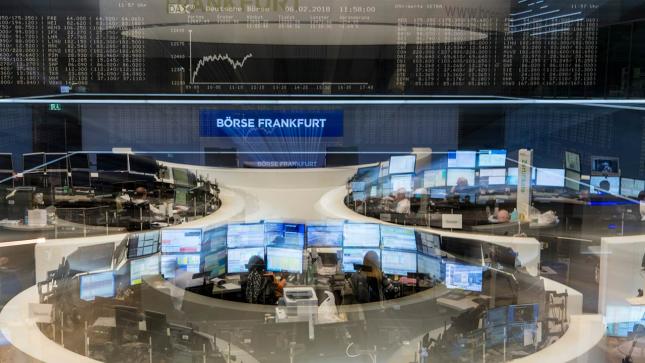German Naval Builder TKMS Sees Shares Jump 23% in IPO Launch
CSU's Guttenberg Defends Party's Incompatibility Resolution With Far-Right AfD
Berlin Authorities Clear Partially Occupied Building Following Years-Long Dispute
Winter Sports Face Reality Check with Roller Biathlon Exhibitions
Knorr-Bremse Acquires Dutch Digital Platform TRAVIS to Expand Commercial Vehicle Services
European Markets React to US Economic Slowdown

The German DAX index experienced a slight downturn, shedding 0.3 percent to settle at 22,351 points, as weak US economic data cast a shadow over global markets. The MDax, representing medium-sized companies, remained unchanged at 28,431 points. Despite the dip, the DAX has managed to recover from the early-month slump caused by US tariff policies, marking a small gain by the end of April and accumulating a cushion of just over 12 percent since the beginning of the year.
Quarterly reports, predominantly from second and third-tier companies, were the main drivers of the German stock market mid-week. Notably, DHL and Mercedes-Benz were in the spotlight within the DAX, with Volkswagen also providing details on its preliminary figures. DHL's shares rose by 1.7 percent following a better-than-expected quarterly operational result and confirmed annual targets, while Mercedes-Benz shares fell by 2.0 percent after the automaker suspended its annual targets due to uncertainties over US tariffs.
Zalando found itself at the lower end of the DAX, with shares dropping by 4.9 percent, weighed down by a study from US bank Morgan Stanley. Analyst Luke Holbrook downgraded Zalando's stock to 'Underweight,' citing increased risks despite the stock's overall rise since the US tariff announcements. In contrast, Aixtron, a chip industry equipment supplier, led the MDax with a 6.0 percent increase, buoyed by strong order intake.
The broader market sentiment reflects concerns over the US economic slowdown, highlighted by disappointing job data from private service provider ADP and a sharper-than-expected decline in first-quarter GDP growth. Analysts suggest that the turbulence from US President Donald Trump's tariff announcements has introduced significant uncertainty, with a prevailing view that the economic trajectory is more likely to trend downward than upward. As European markets prepare for a holiday on May 1, with most exchanges closed, investors remain cautious, wary of being caught off-guard by further developments in the US.